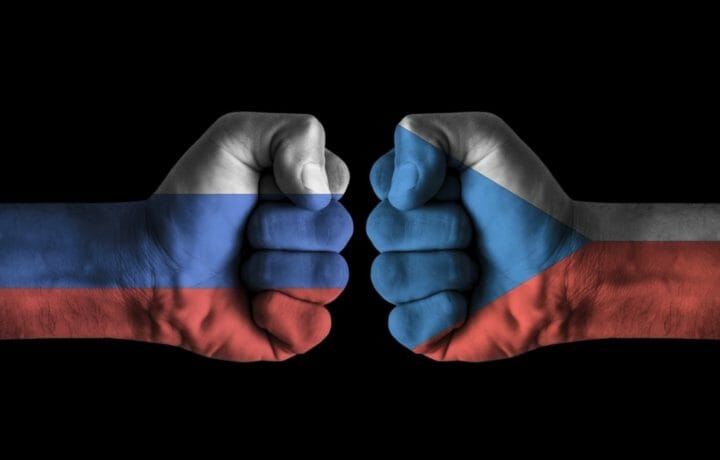The belligerent style of Russian President Vladimir Putin is evidenced on a seemingly daily basis as he attempts to exert his will within the borders of Russia and beyond upon the international community writ large. The laundry list of his approved actions includes empowering the Russian intelligence services to engage a wide range of internationally unacceptable actions to include, assassination, destruction, cyberespionage, and disinformation and influence operations. These past few months nations have been signaling, within the confines of diplomatic protocols, they have had enough, and Russia is seeing their intelligence presence abroad taking a direct hit as Russian intelligence officers living and operating under the cover of “diplomats” are declared persona non gratae.
Persona Non Gratae
In 2018, the United Kingdom declared 23 Russians persona non gratae (PNG) and were supported by 28 other nations who collectively expelled an additional 130 Russians from various Russian Federation diplomatic mission sending a message to Putin when the GRU Unit 29155 attempted the assassination of General Sergei Skripal and his daughter Julia with deadly nerve agent Novichok.
While the level of PNG actions hasn’t reached the 2018 level, it is well on its way, as various counterintelligence entities uncover Russian covert activities. The level of PNG action recently reached a a crescendo when in mid-April the United States expelled ten Russian intelligence officers for actions incompatible with their status (diplomatic speak for spying) and Moscow responded with the expulsion of ten diplomats from the U.S. Embassy.
The U.S. action was preceded by Bulgaria expelling an additional two GRU officers, bringing the total for the preceding two years to six Russian intelligence officers having been expelled from that country.
In mid-April, the Czech government declared PNG 18 intelligence officers from within the Russian embassy in Prague. The expulsions were the Czech government’s way of sending a clear signal to Moscow that the actions of Russia’s military intelligence (GRU) Unit 29155 in the act of sabotage to Czech armory in Vrbetice, Czech Republic, which resulted in the destruction of tons of munitions and the death of Czech citizens would not go unpunished.
Foreign Minister Kulhanek asked for, and received, a message of support and solidarity from the European Union. This included Poland, Estonia, Lithuania, and Latvia issuing PNG orders for seven Russian intelligence officers in support of the Czech Republic.
A U.S. expat, resident in the Czech Republic, observes Russian disinformation and attempted influence is present, and that the topic of Russian expulsions for their belligerent act of 2014 has resulted in prior Czech government support for a Russian-built nuclear plant and discussions for the import of Russia’s Sputnik COVID vaccine has dissipated. That signal was heard and countered by Moscow when the Kremlin expelled 20 Czech diplomats and staff.
Such a response was universally expected as such action had been witnessed by tit for tat expulsions of Bulgarian, Polish and American diplomats from Moscow in response to those nation’s recent PNG actions.
Moscow’s Czech miscalculation
Historically, even when Moscow’s hand is caught deep in the cookie jar, their calculus includes using the diplomatic tool of the retaliatory PNG to make the cost of punishing Moscow higher than many nations wish to pay. Moscow miscalculated the nature of the Czech backbone as the Czech Republic was not having it and opted to send a far stronger signal to the Kremlin.
Czech Foreign Minister Jakub Kulhanek declared the Russian embassy in Prague, a known locus for intelligence activities in the EU, will be manned at the same level as the Czech embassy in Moscow. Kulhanek, with that order had popped the proverbial bully in the nose and kicked another 60 Russian diplomats and staff out of Prague drawing down the number of personnel in their respective embassies to 32 persons.
Jakub Janda, director of the European Values Center for Security Policy noted in the “Assessment of the Czech response to Russian military attack on Czech soil” how “The only real punishment for Russia, for a military attack on our territory, is an equalization of the numbers of diplomats. This is not a fitting punishment for such a serious crime.”
“I am pleased that the Czechs are pushing back and limiting the size of the Russian embassy in Prague to that of the diminished Czech embassy in Moscow,” said John Sipher a former CIA station chief and co-founder of Spycraft Enterprises. He continued, “With a former KGB officer as President, Moscow usually plays this game harder and more effectively. Other countries usually buckle in service of ‘maintaining productive relations.’ As I noted in my Foreign Policy piece “America will always lose Russia’s’ tit-for-tat spy games” of 2017, they know how to play off our various agencies and departments. They know that DoD and State will push back against CIA and FBI efforts to kick out Russian diplomats. Since the Russian regime is run by former KGB officers, they take pride in maintaining the upper hand in these covert games. Russia usually ends up with far more clandestine operatives in place than does whoever was wronged in the first place. The way to play it is exactly how the Czechs did. Russia needs Prague as a spy base far more than the Czechs need people in Moscow.”
As Moscow feels the sting of having 95 officers assigned abroad heading home, their clandestine efforts disrupted and the sting of international rebuke, we can expect more Kremlin retaliation and thus, perhaps, more countries following the Czech lead and drawing down Russian presence to equal levels.




